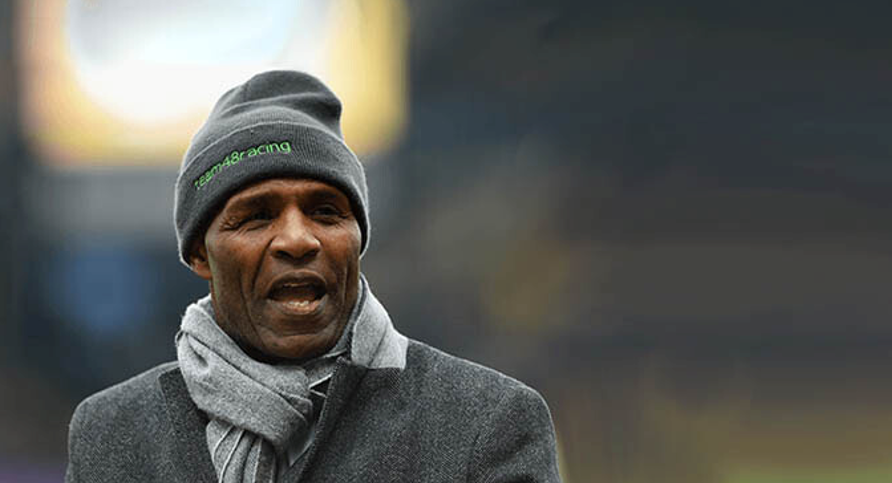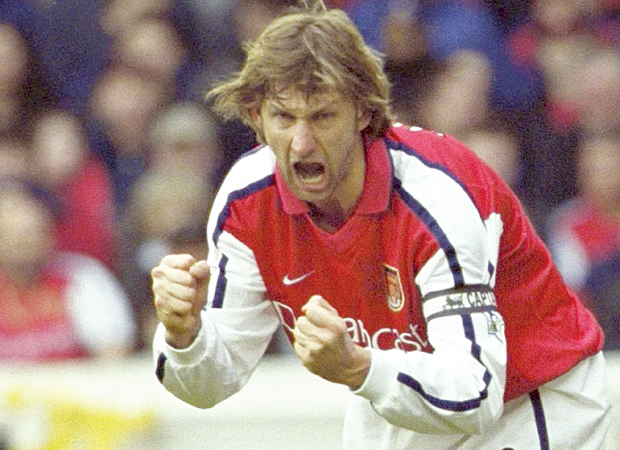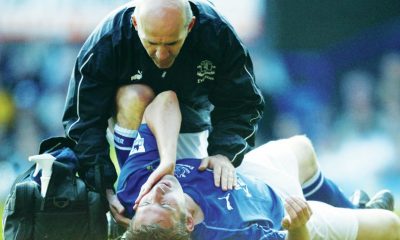
Luther Blissett is one of the most iconic football speakers and pioneering figures in English football history.
A trailblazer both on and off the pitch, Blissett made his name at Watford, becoming the club’s all-time top scorer with 186 goals across three spells.
Under the legendary Graham Taylor, he helped propel Watford from the Fourth Division to runners-up in the old First Division—a meteoric rise capped by an FA Cup Final appearance in 1984.
Blissett was also a key part of England’s national team during the early 1980s, earning 14 caps and famously scoring a hat-trick on his debut against Luxembourg. In 1983, he became the first black player to sign for AC Milan, making history in Serie A and breaking new ground for future generations.
In this exclusive interview with The Champions Speakers Agency, Luther reflects on his formative years in the game, the lessons he learned from adversity, and why diversity and representation in football still matter just as much today.
Q: What first inspired your journey into football, and how did those early experiences shape your playing style?
Luther Blissett: “Oh, my journey into football began as a seven-year-old, I suppose. The school I went to, having come from Jamaica, they were picking the school team, and they got as far as left-back. They said, “Who wants to play left-back?” Nobody volunteered.
“Myself, coming from the Caribbean, was all about cricket and that sort of thing, not football—and I hadn’t played football in the playground only. So, it was a case of, “I’ll play left-back.” No idea what left-back was, no idea whatsoever. So, yeah, I said I’ll play left-back, and so that’s where my football career—let’s say the path—started there, playing at left-back.
“I moved from left-back to centre-half by the time I got to about 11. The first time, actually, I played in a forward role was—I was about 14, I think it was—and it was on a Saturday afternoon in Dallas Hill somewhere… no, no, eventually somewhere.
“And the teacher said, “We need some goals—go up front, because you’re quick,” and whatever. So, I went up front, scored a couple of goals, we won the game, and he said, “That’s your new position—you play up front.”
“And, you know, so that was my football early days at school. Obviously, I played Sunday football for my youth teams and stuff like that—local. Then I went to Watford on the trial with a number of my schoolmates when I was 15, because Paul Kitson had previously been at our school.
“He left and became a professional footballer at Watford. He came back one August time and said, obviously, we—he—here footballers in the school, all mobbed into the common room, and there we were, all talking and firing questions in left, right and centre.
“At the end of it all, he said to us, “You guys should go down to the open trials Watford are having at Harrow Stanmore and see how you do—your luck.” So, nine of us did. We all went. And I was the only one that actually made it beyond the trials and a few games to ultimately sign when I was 17.”
Q: In your view, what core attributes and mindset are essential for succeeding in football—whether on the pitch or within the wider industry?
Luther Blissett: “I think when you talk about football—if we say football as a whole at the moment—I think the first thing you have to do, you have to at least, I think, have a degree of ability, of talent, if you’re going to get a chance.
“Because one thing I’ve learned, especially in a team sport: you don’t have to be the best of the best of the best to be successful. What you have to be is have certain attributes that you can bring—it’s like a jigsaw puzzle.
“So, there’ll be different people in there that have different strengths and qualities, and you have to complement what they have by what you bring to it. And the biggest thing you bring is that you work as hard as everybody else, you give as much as everybody else, and you try to do your best every time you cross that line and every time you go out training.
“And that, I think—if you carried that very same mantra into the workplace of any workplace—I think it would work. That’s so, so important. Because if you give 100%, you don’t have to know every detail about what you’re doing initially. You just need to be able to give what you can and work as hard as the bits you know, and you learn and progress along the way as you go along.
“Because, you know what, a lot of conversations say about not enough Black coaches and managers—and I often ask people a question: What did the first manager of a football club do? How did they know he was going to be successful? What he did—he just managed. He had to learn in the position.
“So, for all of us, we’re all learning in any position we’re in. From the abilities where we start, we have to learn how to make what we have better and to make others better and to mould a team of people and guide them—good direction and good practice. And if you can mould that and get people together, I think you can be successful at pretty much anything you want to take on.”
Q: Reflecting on your career and upbringing, can you share a moment of personal hardship and how you managed to overcome it?
Luther Blissett: “I think hardship would probably be—and it’s only on looking back that, for me, I realised what it was like—because when we came to England, my mother was doing three jobs to make sure that we all could get our school uniforms, we could all have, you know, little things. And the one thing—make sure you never went to school with clothes that were tatty and torn, shoes with holes in it, and stuff like that.
“But you never saw it as that all the time. You just thought Mum was just this amazing person that, regardless, whatever—she always had a solution for everything. But, you know, that was hardship. Because she worked for all the hours God got, to look after seven children.
“And that, I think, helped myself and others in the family to recognise that it’s something—we’ve got to do it together. But, you know, whatever you dedicate yourself to, you’ve got to give your all to it. You’ve got to give everything you have to try and get the most of it. And you do it for—not so much for yourself—but you do for other people.
“And that translated really well with the football, which is why my mum was so pleased when Graham Taylor arrived, because that thing in him was exactly the same way. And I think that really brought everything together nicely for us.”
Q: Why do you believe diversity is vital in sport, and how has it influenced the culture and progression of football in particular?
Luther Blissett: “Diversity is important because we live in such a diverse world—even if all we do is travel somewhere on holiday. Because when you go on holiday, it’s not only people from, say, England will turn up in, let’s say, in Spain or in Italy—whatever. There’ll be people from Germany and all sorts. And, ultimately, we do mix, and we do learn a little bit about each other. And we do—and I think we’re better for it.
“It’s a little bit like education. The better educated you are, the more rounded and complete person that you ultimately become, because you can deal with different situations and you can literally be part of anything. Because you don’t feel like you’re on the outside.
“And I think it’s very much the same when it comes to diversity. We live in such a country which—there are people from countless different other countries and their cultures—and it just makes everything that we do so much better. So, I just think that, for me, is why it’s so important. It just makes life better for everyone.”
This exclusive interview with Luther Blissett was conducted by Chris Tompkins of The Motivational Speakers Agency.

















